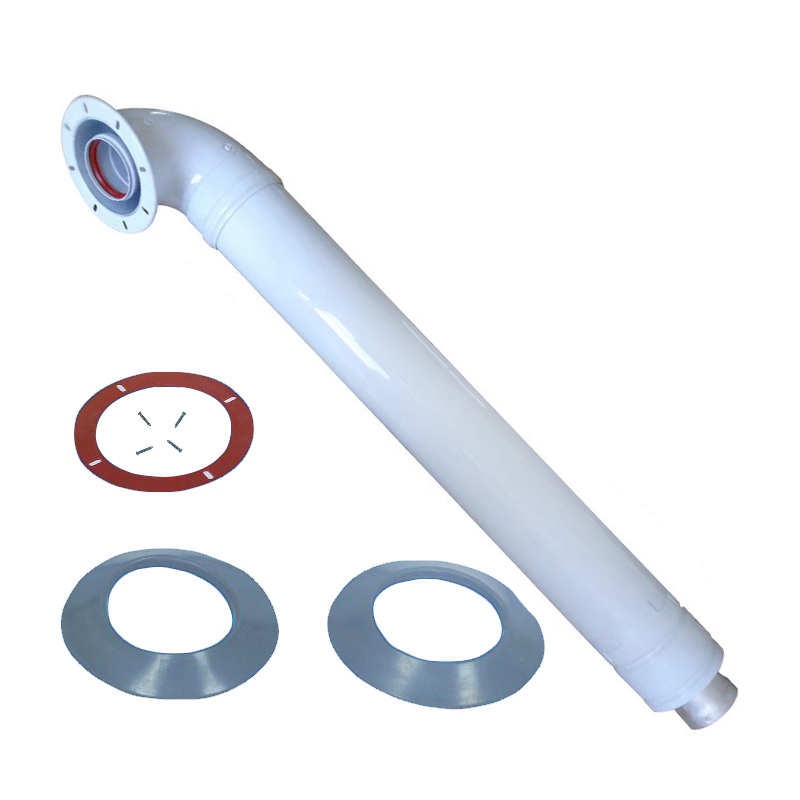Overview Coal-fired boilers must be equipped with de […]
Overview
Coal-fired boilers must be equipped with desulfurization and denitrification devices in the boiler exhaust gas section, which greatly increases the investment and operating costs of coal-fired boilers. With the country's vigorous development of oil and gas resources, the development of cleaner fuel gas boilers has entered a new stage of development. Next, I will discuss with you the typical problems in the design and operation of oil-fired gas boilers.
1. Development advantages of fuel gas boiler
my country's conventional energy resources are dominated by coal, which determines that my country's energy production, consumption and power structure are dominated by coal. The emission of atmospheric pollutants in my country has seriously exceeded the environmental capacity, which requires us to have higher requirements for energy and pollutant emissions. Oil-fired gas boilers have unique advantages in the boiler industry, especially in small and medium boilers. The fuel gas burner has less investment, the furnace heat load is high, the furnace volume is significantly reduced compared with coal-fired boilers, the heat transfer effect is good, no large amount of flue gas cleaning equipment, little or no ash in oil and gas, and little wear on the equipment , The equipment maintenance workload is small, the fuel gas combustion pollutant emission is low, etc., these provide good conditions for the development of fuel gas boilers.
2. Safety and explosion-proof of fuel gas boiler
After the atomization of fuel oil and fuel gas are combustible gases, when mixed with air to reach a certain content range, can form a flammable and explosive mixed gas. Therefore, special requirements are put forward for the safety and explosion-proof of oil-fired gas boilers.
When the mixed gas reaches the maximum explosive content, the explosion pressure in the closed container can reach 0.75-1.65MPa according to different gases. The pressure capacity of the furnace and flue gas channel of the water tube boiler can generally reach several thousand Pa. The pressure capacity of the furnace It is generally greater than the pressure-bearing capacity of the flue gas channel. Therefore, the explosion of the mixed gas will cause great damage to the boiler flue gas channel and the structure of the heating surface.
The gas explosion accidents in the furnace and flue gas channels of domestic and foreign oil-fired gas boilers can cause the boiler to deflagration and flameout, and the furnace and flue can burst, damage the induced draft fan, damage the boiler room and chimney, and even cause casualties.
In all accidents, the most accidents occurred during the boiler ignition process, accounting for more than 50% of fuel oil boiler explosion accidents, accounting for more than 70% of fuel oil boiler explosion accidents.
Before the boiler is ignited, if the fuel gas leaks into the furnace for some reason, such as the valve is not tightly sealed, the operation is incorrect, the ignition is unsuccessful, etc., and the furnace is not purged or the purge time is not enough, the air volume is not enough, etc., the ignition Deflagration will occur.
There are many oil-fired boilers due to explosion accidents caused by flameout during the operation of the boiler. It is more likely that the oil-fired boiler will be flameout. Such accidents of gas boilers mostly occur in front of the burner due to large fluctuations in gas pressure or wind pressure, causing fire or flashback.
For boilers operating under negative pressure, when the boiler burns poorly, combustible gas enters the rear flue of the boiler and mixes with the air leaked from the rear flue to form an explosive gas, especially when the burner is poorly atomized, the fuel is not completely It is atomized into oil and gas, and the small oil droplets adhere to the heated surface of the tail with the wind. Under the action of high temperature, it may cause secondary combustion or explosion of the tail flue, threatening the heated surface and personal safety. .
As can be seen from the above, to place the furnace or flue explosion, first of all, it is necessary to prevent fuel from entering the furnace when there is no open flame in the furnace, and secondly to ensure good combustion. As a precautionary measure, the furnace chamber and flue must be carefully purged before ignition, so that the combustible gas that may accumulate in it is eliminated in time.
In terms of safety, the automation of the fuel gas boiler combustion system is necessary, including ignition program control, flameout protection, and automatic combustion adjustment. Every time the boiler fails to ignite, the furnace must be automatically purged to prevent the accumulation of oil and gas in the furnace and cause deflagration.
In order to reduce the degree of explosion damage in the furnace and flue, explosion-proof doors should be installed in the furnace and flue of the fuel gas boiler.
When a mixed gas explosion occurs, the explosion-proof door is opened back, and high-pressure gas is leaked, thereby reducing the damage degree of the explosion.
